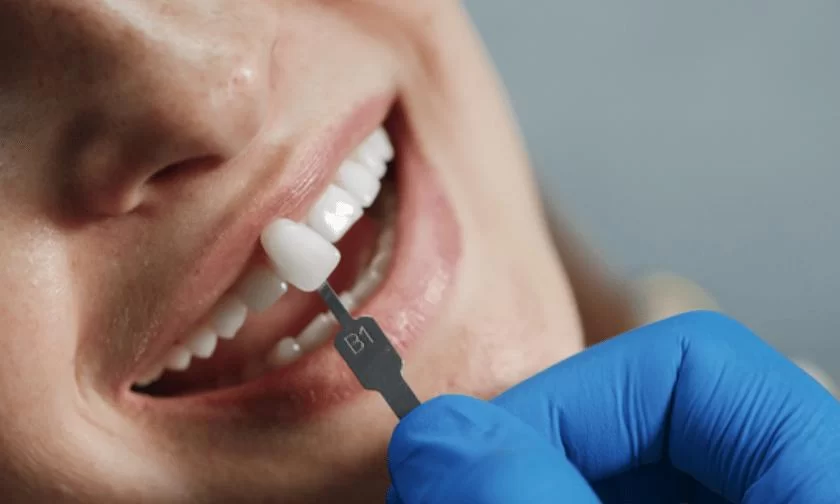
Understanding Gum Recession: What Happens to Your Gums?
As someone who has always been concerned about dental health, I was shocked when I started noticing my gums receding. I thought, "How could this happen to me?" Gum recession is more common than you might think, and it can have serious consequences for your oral health if not addressed early on. Let me take you through what gum recession is, why it happens, and how you can protect your gums from this damaging process.
Gum recession occurs when the gum tissue that surrounds the teeth pulls back, exposing more of the tooth or even its root. Over time, this can lead to sensitivity, increased risk of tooth decay, and even tooth loss if left untreated. The roots of the teeth are more vulnerable than the enamel on the crowns, making them more susceptible to bacterial attacks, plaque buildup, and decay. As a result, it's crucial to take proactive steps to protect your gums and maintain their health.
Why Do Gums Recede?
Several factors contribute to gum recession, and understanding them is essential in preventing it. For me, it wasn’t just one cause but a combination of habits that led to the recession of my gums. Some of the most common reasons for gum recession include:
- Poor Oral Hygiene: Failing to brush and floss regularly allows plaque to build up along the gumline, which can lead to gum disease and recession over time.
- Genetics: Some people are simply more predisposed to gum problems due to their genetic makeup. If your family members have experienced gum recession, you might be at a higher risk.
- Aggressive Brushing: Using a hard-bristled toothbrush or brushing too aggressively can wear down the gum tissue and cause recession.
- Tobacco Use: Smoking or chewing tobacco significantly increases the risk of gum disease and recession by reducing blood flow to the gums.
- Hormonal Changes: Changes during pregnancy, menopause, or puberty can make your gums more sensitive and prone to recession.
The Role of Gum Disease in Recession
Gum disease, or periodontal disease, is one of the leading causes of gum recession. It starts with gingivitis, which is the inflammation of the gums caused by plaque buildup. If left untreated, gingivitis can progress to periodontitis, a more severe form of gum disease that leads to tissue destruction and bone loss around the teeth. The infection that develops in periodontitis can cause the gums to recede as they become damaged. Early detection and treatment of gum disease are crucial in preventing further damage.
How to Protect Your Gums from Recession: Proven Strategies
Protecting your gums from recession is possible with the right approach to oral care. Over time, I’ve learned several methods to keep my gums healthy, and I’m excited to share them with you. Here are some of the most effective ways to protect your gums:
1. Practice Good Oral Hygiene
The foundation of any effective gum protection strategy is maintaining excellent oral hygiene. Brushing your teeth at least twice a day and flossing daily can help prevent plaque buildup, which is a major contributor to gum recession. When brushing, make sure to use a soft-bristled toothbrush and avoid brushing too aggressively, as this can damage your gums. I also recommend using toothpaste that contains fluoride to strengthen your enamel and protect your teeth.
2. Choose the Right Toothbrush and Technique
One mistake I made early on was using a hard-bristled toothbrush. I thought it would clean better, but it actually caused my gums to recede faster. After switching to a soft-bristled toothbrush and brushing gently in small circular motions, I noticed a significant improvement. Avoid brushing in a back-and-forth motion, as this can be harsh on your gums. A gentle, circular brushing motion is much more effective in keeping your gums healthy.
3. Floss Daily
Flossing is just as important as brushing, yet it’s often overlooked. Plaque and bacteria can accumulate between your teeth and along the gumline, areas your toothbrush can’t reach. I make sure to floss at least once a day to remove any food particles and plaque that could lead to gum disease. Flossing not only helps prevent gum recession but also keeps your teeth and gums free from harmful bacteria.
4. Stay Hydrated
Drinking enough water is essential for overall oral health. Water helps wash away food particles and bacteria, and it also promotes healthy saliva production, which naturally protects your gums. I’ve found that staying hydrated throughout the day helps keep my mouth clean and my gums healthy.
5. Regular Dental Checkups
One of the best ways to protect your gums from recession is by visiting your dentist regularly. I make it a point to get a professional cleaning every six months. During these visits, my dentist checks for early signs of gum disease, such as bleeding or inflammation, and can take action before it progresses into something more serious. Early intervention is key to preventing gum recession and other dental problems.
6. Quit Smoking or Using Tobacco
If you’re a smoker or use tobacco products, it’s essential to quit for the sake of your gums. Tobacco use restricts blood flow to your gums, weakening them and making them more susceptible to infection. I know firsthand how challenging it can be to quit, but it’s one of the best things you can do for your oral health.
7. Protect Your Gums from Physical Injury
Accidents can happen, but protecting your gums from physical trauma is important. For example, if you play sports, wearing a mouthguard can help prevent injury to your gums and teeth. I always wear a mouthguard when playing contact sports, and it’s been a simple yet effective way to keep my gums safe from harm.
Understanding the Importance of Gum Health
Taking care of your gums isn’t just about preventing gum recession—it’s about maintaining your overall oral health. Healthy gums support your teeth, prevent tooth loss, and reduce the risk of other oral health issues like tooth decay and gum disease. By following the steps outlined above, you can protect your gums and ensure a lifetime of healthy smiles.
It took me a while to realize how essential it is to focus on gum health, but now I make sure to care for my gums every day. With these practical tips, I’m confident you can also protect your gums and maintain a beautiful, healthy smile for years to come.







 Hall Orthodontics5.0 (150 review)
Hall Orthodontics5.0 (150 review) Dentists of South Pasadena4.0 (124 review)
Dentists of South Pasadena4.0 (124 review) Topline Family Dental4.0 (259 review)
Topline Family Dental4.0 (259 review) Springfield Kids Dental5.0 (184 review)
Springfield Kids Dental5.0 (184 review) LA Dental Clinic4.0 (262 review)
LA Dental Clinic4.0 (262 review) Precision Oral Surgery and Implants4.0 (127 review)
Precision Oral Surgery and Implants4.0 (127 review) The Importance of Oral Health Education During Pregnancy for a Healthy Pregnancy
The Importance of Oral Health Education During Pregnancy for a Healthy Pregnancy Best Tips for Brushing Your Teeth Properly for Healthy Gums: Essential Techniques for Oral Health
Best Tips for Brushing Your Teeth Properly for Healthy Gums: Essential Techniques for Oral Health Why Skipping Dental Checkups Can Lead to Bigger Oral Health Problems
Why Skipping Dental Checkups Can Lead to Bigger Oral Health Problems Advantages of Porcelain Dental Restorations
Advantages of Porcelain Dental Restorations How Can Diabetes Cause Tooth and Gum Problems? Preventing and Managing Oral Health Issues
How Can Diabetes Cause Tooth and Gum Problems? Preventing and Managing Oral Health Issues Healthy Habits for Promoting Good Oral Health and Hygiene: Tips for a Healthy Smile
Healthy Habits for Promoting Good Oral Health and Hygiene: Tips for a Healthy Smile